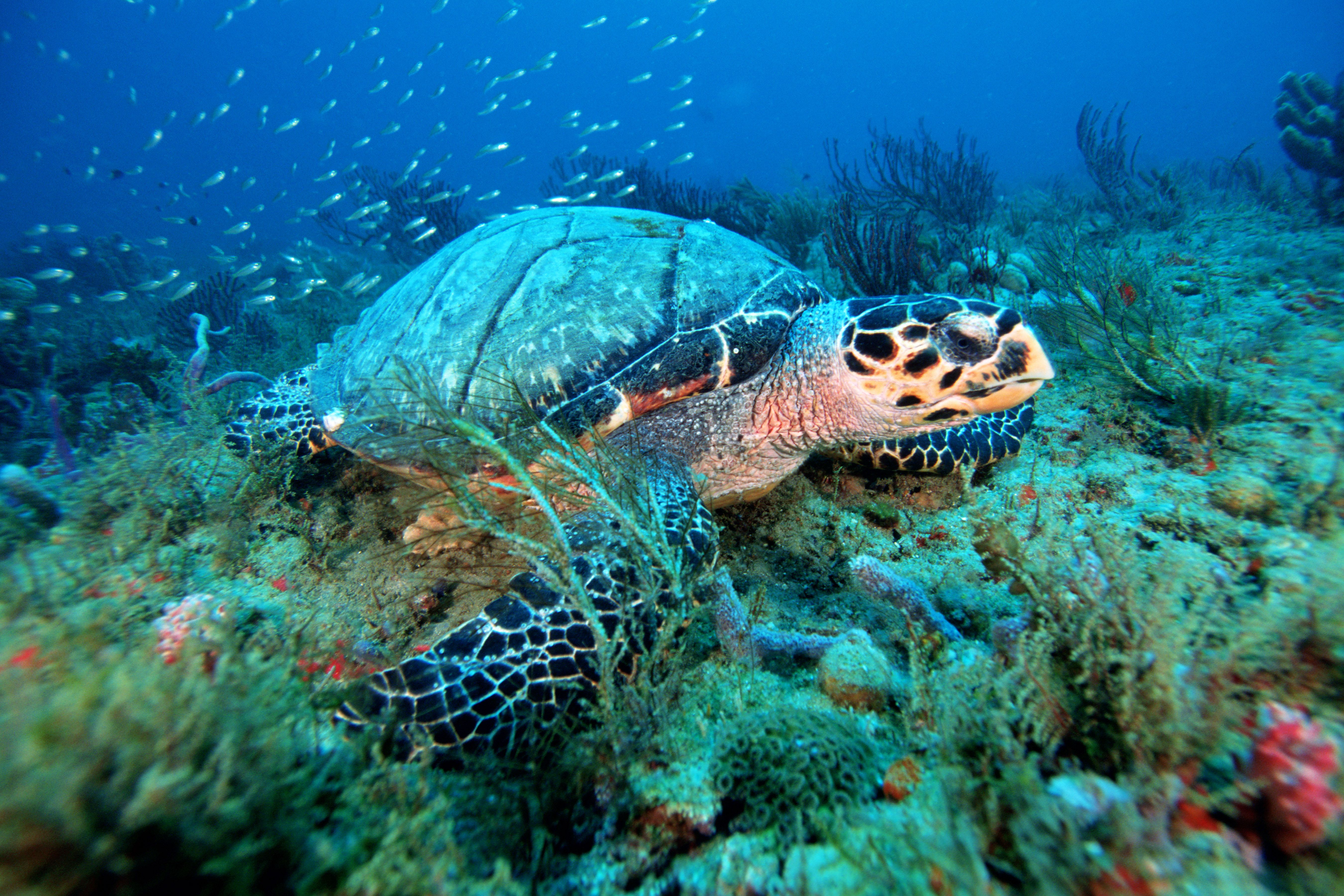The historic heat waves that roasted the U.S. and Europe over the summer may have subsided. But a record marine heat wave is gripping large expanses of the North Atlantic and northern Pacific oceans.
The big picture: It has implications for marine species and extreme weather events, including hurricanes, as climate change exacerbates the problem. NOAA scientists warn it shows no signs of immediately abating.

Driving the news: "Climate change is making every marine heatwave warmer than the last," research scientist Dillon Amaya, who studies marine heat waves at NOAA's Physical Sciences Laboratory, tells Axios.
- "Climate change increases the mean temperature of the ocean (i.e., global warming)," Amaya says. "Marine heatwaves ride that upward trend and are becoming warmer as a result."
By the numbers: "The North Atlantic is currently something like four degrees Celsius warmer than normal, or at least parts of it are. And you end up seeing similar numbers for the North Pacific as well, it's for about four degrees Celsius warmer than normal," Amaya says.
State of play: Heat wave conditions in both the North Pacific and the North Atlantic have lasted for some three months. "For these parts of the world, these temperatures are unprecedented," Amaya says.
- Vincent Saba, a fishery biologist at NOAA's Northeast Fisheries Science Center, notes it's "warmed faster in the U.S. Northeast shelf than any other region across the country in the last 15 years."
- Fish biomass was still relatively stable, but scientists had observed changes in marine species in the Northwest Atlantic, Saba said in a phone interview last week.
- In the Pacific Ocean, there's a La Niña climate event for the third year in a row. This can lead to warmer than normal conditions in the Northeast Pacific, Amaya said.
Of note: Warming isn't the only impact of climate change.
- "We're also talking about an increased concentration of carbon dioxide in the water, which makes the waters more acidic," Saba says.
- "That can impact shelf species like lobster, highly valuable sea scallops. We're still unclear on what those impacts are."
Threat level: "With climate change some marine species will fair better than others," Saba says.
- Research suggests warmer water species are staying in the U.S. Northeast for longer, while North Atlantic right whales are foraging in different waters as they follow their plankton prey, which have moved locations — raising concerns about ship collisions and entanglement with fishing gear.
- It's unclear whether this is due to climate change or warming waters, per Saba.
- "We've seen major changes in species distributions," he says. "Warmer water species moving north, and a lot of colder water species moving further north out of the system has kind of been the general trend."
- Research that Saba and his colleagues have conducted found warmer waters were leading to almost all female sea turtles hatching — though projections indicate the biggest long-term threats will be in hatchling mortality as nests and beaches warm up and erosion from sea level rise destroys nests.
Zoom in: Bette Zirkelbach, manager of the Turtle Hospital in the Florida Keys, said along with the hatchlings issue, she's seen an increased prevalence of fibropapillomatosis (FP), a tumor-causing disease that primarily affects green sea turtles.
- In the past 12 months, 70% of about 47 turtles admitted to the hospital with FP were diagnosed with internal tumours and had to be euthanized as there's currently no treatment for internal turmors, Zirkelbach said in a phone interview Tuesday.
- "Warmer waters cause these tumours to grow," she said.
Meanwhile, 20 Kemp's ridley sea turtles were flown to the hospital from New England last year after the critically endangered animals stayed too long in Cape Cod Bay instead of moving out with the Gulf Stream.
- "The cold weather hits and they get trapped," Zirkelbach said.
What to watch: The marine heat wave isn't just a threat to animals. Models project it may exacerbate the deadly Hurricane Fiona if the storm continues to to track northward and enters the Northwest Atlantic later this week.
- If this occurs, it would help Fiona maintain its tropical nature and intensity for longer than if the marine heatwave were not there, Amaya notes. However, "the strong winds and associated upper ocean mixing may help to cool off parts of the ocean that are really warm right now."
The bottom line: To break up the marine heat wave, "the atmospheric wind patterns need to revert back to normal and the ocean would then need time (typically several months) to cool back down without being poked again," Amaya says.







